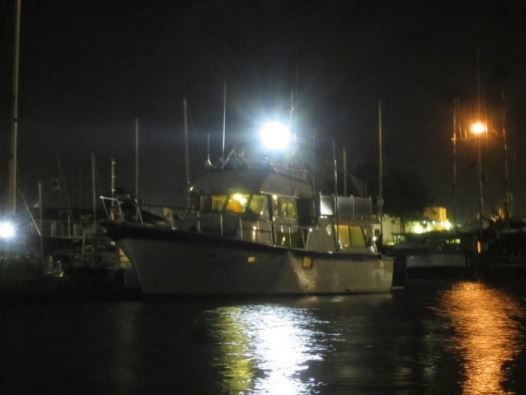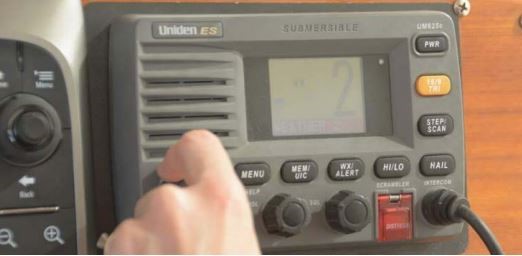Potential interference of VHF-FM radio and AIS reception
The United States Coast Guard (USCG) have published Safety Alert 13-18, regarding numerous reports on poor reception of VHF frequencies used for radiotelephone, digital selective calling (DSC) and automatic identification frequencies (AIS).
What happened?
- Poor reception was noticed when around LED lighting on-board vessels (navigation lights, searchlights and floodlights); interior and exterior lights and adornment lighting are just some of the few lighting systems containing LED lighting;
- The radio frequency (RF) interference caused was found to create potential safety hazards;
- A maritime rescue coordination centre was unable to contact a ship involved in a traffic separation scheme incident by VHF radio. The ship had also experienced very poor AIS reception;
- Other ships in various ports experienced degradation of VHF receivers, including AIS, caused by their LED navigation light. LED lighting installed near VHF antennas has shown to interfere with the reception.


What lessons were learned?
- RF interference may not be immediately obvious to maritime radio users. However, it may be possible to test for interference caused by LEDs;
- turn off LED light(s)
- tune the VHF radio to a quiet channel
- adjust the VHF radio’s squelch control (until the radio outputs audio noise)
- re-adjust the VHF radio’s squelch control until the audio noise is quiet (slightly above the noise threshold)
- turn on the LED light(s) – if the radio outputs audio noise, then the LED lights have raised the noise floor
- if the radio does not output audio noise, then the LED lights have not raised the noise floor;
- If the noise floor is found to have been raised, then it is likely that both shipboard VHF marine radio and AIS reception are being degraded by LED lighting.
The USCG has requested that anyone experiencing this kind of problem, to send reports to Coast Guard Navigation Center.
The full safety alert can be found on the USCG’s website.
Safety Event
Published: 30 October 2018
Download: IMCA SF 24/18
IMCA Safety Flashes
Submit a Report
IMCA Safety Flashes summarise key safety matters and incidents, allowing lessons to be more easily learnt for the benefit of all. The effectiveness of the IMCA Safety Flash system depends on Members sharing information and so avoiding repeat incidents. Please consider adding safetyreports@imca-int.com to your internal distribution list for safety alerts or manually submitting information on incidents you consider may be relevant. All information is anonymised or sanitised, as appropriate.
IMCA’s store terms and conditions (https://www.imca-int.com/legal-notices/terms/) apply to all downloads from IMCA’s website, including this document.
IMCA makes every effort to ensure the accuracy and reliability of the data contained in the documents it publishes, but IMCA shall not be liable for any guidance and/or recommendation and/or statement herein contained. The information contained in this document does not fulfil or replace any individual’s or Member's legal, regulatory or other duties or obligations in respect of their operations. Individuals and Members remain solely responsible for the safe, lawful and proper conduct of their operations.
